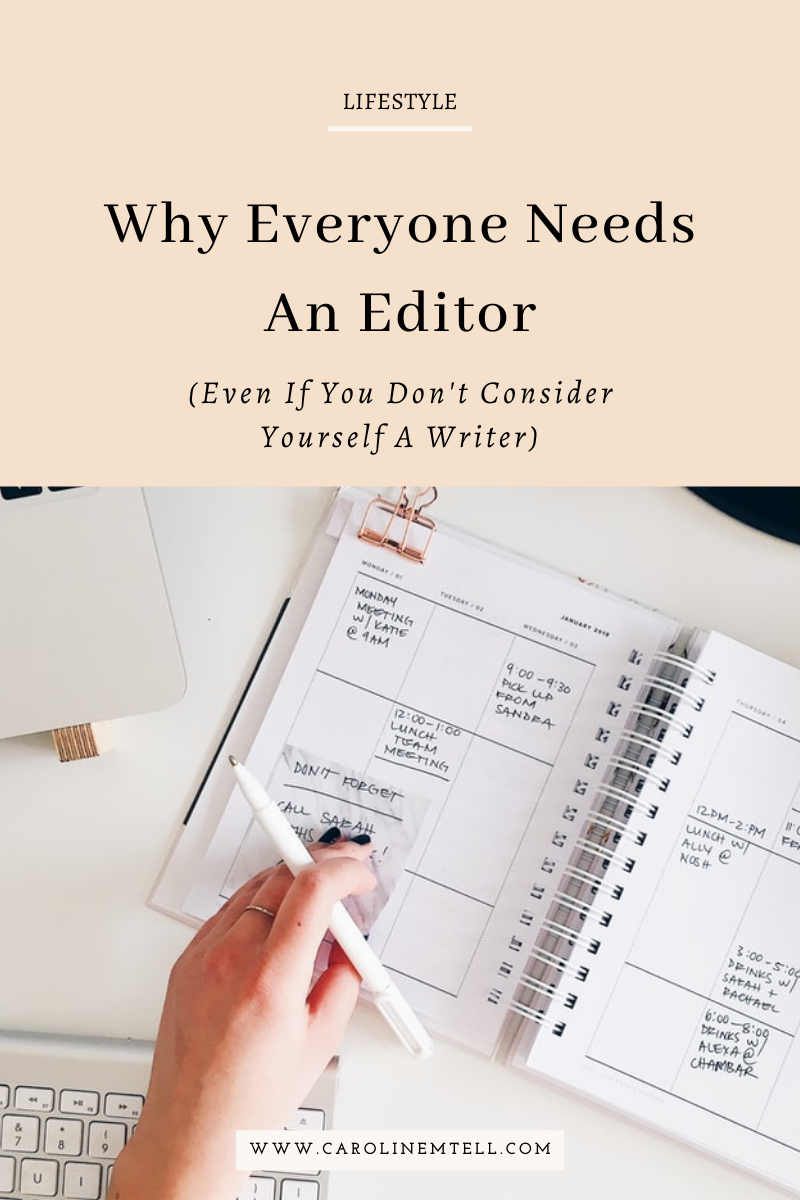- Caroline M. Tell

- Jul 10, 2021
- 4 min read
Updated: Jul 30, 2021

When I was still in school, my mom would insist on reading over my homework. Essays, letters, writing prompts, you name it. She would hold out her hand, tell me to cough it up, and promptly mark my assignments up with red ink (or track comments), pointing out all of my mistakes and telling me to fix them.
Being a somewhat stubborn teenager, it used to annoy the heck out of me. Did she have to get involved in everything I do? Why couldn’t she just let me do the work myself? As with most things, it took me a while to see the wisdom behind her actions.
See, she wasn’t reading over my work to meddle or be annoying. She was just making sure my work was the best it could possibly be. She knew I couldn't to do that on my own, that I needed someone else to catch the mistakes and awkward sentences I couldn't see.
In other words, I needed an editor, even as a student.
My point in telling you all this is not to bore you with the mundane problems of my younger self. My point is to show you that writers aren't the only ones who need editors.
Take me, for example. Before I was a writer/editor, I was a student, then a young grad looking for a job, and through it all, I still needed an editor (my mom). That's because, no matter what I did, no matter what I considered myself, I always had to write something. The same thing goes for you.
Whether you’re a businessman, a stay-at-home mom, or a sales rep pitching products, I'm willing to bet you write a lot.
Don’t believe me? Just take look in your email “Sent” box. How many emails are in there that consist of more than just emogjis? How many of them are to you boss, colleagues, friends, potential employers looking to hire, or a company you’re trying to persuade to give you a discount on a pair of shoes? Chances are, there are many.
Now, when I say "editor," I don't necessarily mean the professional kind who sleeps with a style guide under her pillow (though the more formal the intention behind the writing, the more professional you should get). I mean someone whom you trust to give you honest and constructive feedback—an extra pair of eyes, if you will, who can tell you if something doesn't make sense. (Bonus if he or she also also has good command over the written language.)
I'm also not saying you should have an editor for things like RVSPing to a party. But if you're, say, a secretary tasked with sending out notifications to your officemates, it's probably a good idea to have someone look at them before sending.
Why?
Several reasons. Here are only a few:
1. Getting another perspective can help clarify your message
In the novel writing community, there's a reason why experienced novelists stress the importance of beta readers. It's because their feedback is crucial in telling them if their stories make sense or not, if a character comes across a certain way, or if a certain theme comes through. This is because the whole goal in storytelling is for readers to connect with the story, which is impossible for writers to judge on their own.
You may think that you're getting your point across the first time you write it down. But is there a way you can save your readers' time by saying it in fewer paragraphs, sentences, words? Are you not saying enough?
Only an outside perspective can tell you if you've successfully gotten your point across and if it makes sense.
2. You do not see all of your mistakes
Something strange happens when we edit our own words. Our brains will start filling in gaps, correcting typos, and making wordy sentences sound like poetry. It already knows what we we were trying to say, so to it, everything makes total sense.
In psychology, it's called Cognitive Bias. In editing, its called "Murhpry's Law" (and yes, the misspelling is intentional). I just like to think of it as your brain thinking everything you do is perfect and being less willing to look at the parts that aren't, even when you're looking for them.
Though we can mitigate this by letting our writing breath for a time before editing it, we'll still miss some errors. The old adage two eyes are better than one applies here. You can't catch as many mistakes by yourself as you can with another pair of eyes on it.
3. Clearer and cleaner writing will always make you look more professional
Whether we know it or not, we all judge people from their writing. Like clothes, their words are a reflection of themselves.
Writing that is easier to read, more consistent in spelling and grammar, and clearer in the points it make is going to look more professional. Writing that is littered with typos, has no punctuation, and is wordy with run-ons not only looks sloppy, but is going to be harder to read and understand.
Your words are a part of your identity. They speak volumes about who you are (pun intended). It is worth cleaning them up and making them look and sound as good as you. So make them shine like the awesome person you truly are.

Tell Me About It
My biggest reason for not handing my writing over to an editor (mostly my mom) is the dread of someone read over my words before they are polished and perfect. What are your biggest reasons?



Comments